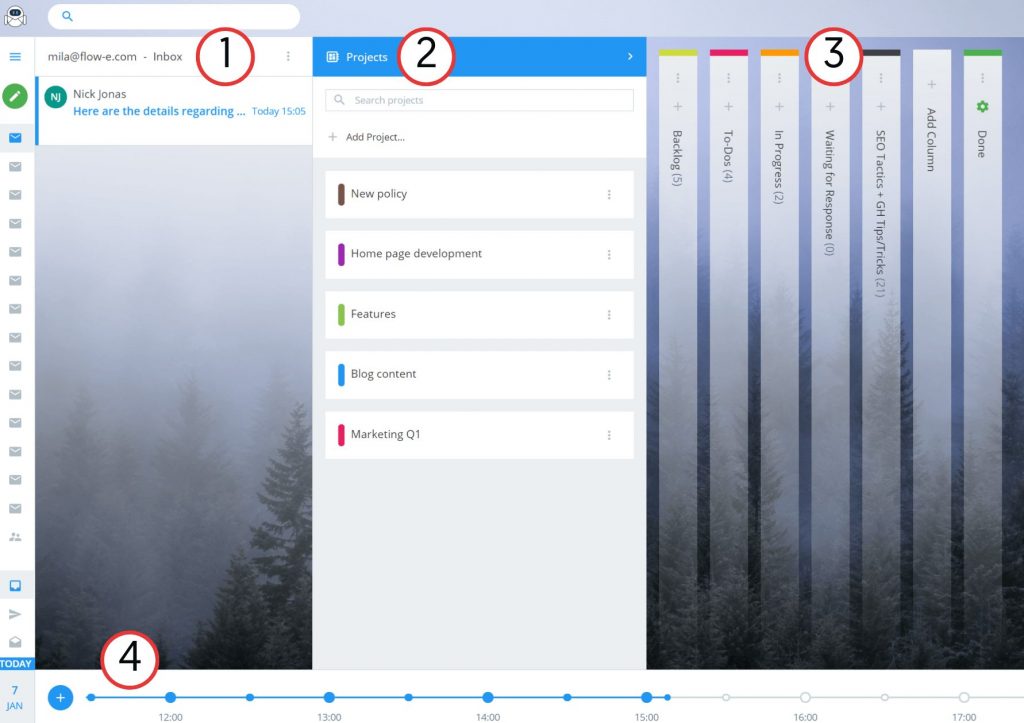What is Project Management?
All projects are temporary as they have a defined beginning and end as well as defined scope and resources. Projects can also be unique as they are not part of routine operations, but are instead a set of operations that have been designed to meet a single goal.
This results in people working together who generally would not having been brought together from different departments and geographies for the project. Projects can include the development of software for improved business processes or relief efforts after a natural disaster.
They also include the expansion of sales into a new location and the construction of a bridge or building. Regardless of the type of project, they all need to be managed correctly to deliver on budget and on time results.
Project management is the application of skills, knowledge, techniques, and tools to the project activities to ensure that all project requirements are met. In the past, this was an informal practice but has become a distinct profession from the mid-20th century.
SIMPLE PROJECT MANAGEMENT ARTICLES
Personal Project Management via Email
The email based project management saves time and makes your work done really faster. And here is why – you can add notes and make to-do lists for your emails and tasks.
SIMPLE PROJECT MANAGEMENT ARTICLES
Project Management for Small Business Owners
Being in the project management business for many years now, we know that there’s no one right way to do things. Moreover, sometimes the remedy for one company could be the harm for another.
SIMPLE PROJECT MANAGEMENT ARTICLES
The Simplified Way to Manage Your Startup
Startups often make certain project management mistakes. Here is a list of some of the most common mistakes made by startups and a few ways to avoid such situations.
Project management processes fall into 5 groups:
1) Initiating;
2) Planning;
3) Executing;
4) Controlling and Monitoring;
5) Closing;
Project management knowledge draws on 10 areas:
1) Integration;
2) Scope;
3) Time;
4) Cost;
5) Quality;
6) Procurement;
7) Human resources;
8) Communications;
9) Risk management;
10) Stakeholder management;
While all management is concerned with this, project management will bring a different focus which is shaped by the goals, schedule, and resources of the project.
This focus has provided worldwide and rapid growth of project management as a recognized and organization competence as well as a career path and subject for education and training.
Who are Project Managers?
Project Managers are passionate, organized and goal-orientated who understand what projects have in common. They also understand their strategic role in the success and change of an organization.
After all, project managers are change agents – they create project goals and use their skills to inspire a shared sense of purpose in a team. They will also thrive on the organized adrenaline that comes with new challenges and the responsibility of driving results for the project.
A project manager will work well under pressure and is comfortable with complex and dynamic environments as well as change. They are able to shift between the big pictures and the small details that make up the project. They will know what they need to shift focus to meet their objectives.

Project managers will also have the people skills which are needed to develop clear communication and trust with all of the stakeholders of the project. This will include the sponsors, the people who will use the end result of the project and the people in charge of the resources that are needed along with their team members.
These professionals will also have a flexible and diverse toolkit of techniques which can resolve complex activities. This toolkit will be able to divide activities into tasks that can be documented, monitored and controlled.
Project managers will be able to adapt their approach to the constraints and context of the project they work on and understand that there is no one size fits all solution. They will also always be looking to improve both their own and their team’s skills through lessons learned when reviewing their projects.
It is possible to find these people in every type of organization. With experience, any employee, contractor or consultant could become a project or portfolio manager. The demand for these professionals is increasing worldwide.
The pace of technological and economic change has picked up, and more organizations are directing their energy into projects instead of their routine operations.
HR managers and senior executives have recognized that project managers are a strategic competence that is needed for business success. They also know that these professionals are one of their most valuable resources.
Simple Project Management Tool With Email Integration
Finding good simple project management tool that supports email based project management is challenging. Not to say almost impossible.
There aren’t many good personal project management tools to work via email. Not to mention the ability to have a Kanban board withing your email.
The email based project management saves time and makes your work done really faster. And here is why – you can add notes and make to-do lists for your emails and tasks.
You can attach documents with any task, send emails and meeting invites, track multiple projects, and delegate tasks, all through your email.
You still think that this doesn’t exist? Here is a proof:

Now, what you see on this screenshot is one project management application combining 4 different functionalities:
1) Email (#1 shows my email inbox feed);
2) Projects panel (#2 shows all the projects I manage via my email);
3) Kanban board (#3 shows a Kanban board withing my email);
4) Calendar and timeline view (#4 shows my calendar availability at a glance).
So yes, the personal project management via email is possible with a single application.
Simple Project Management App for Small Business Owners
How do you come up with your Project Management strategy?
Being in the project management business for many years now, we know that there’s no one right way to do things. Moreover, sometimes the remedy for one company could be the harm for another.

That said, the preferred approach is always custom – the one you build yourself. Only you know your context well enough to design a solution that actually works.
But don’t be tempted to implement something that works for your friend. It might not work for you. A much better strategy is to develop a deep understanding of some work principles and then design the solution yourself.
Throughout this article, we would like to share some of the principles that we find truly important. They can get your company to the next level.
• Principle I: Work Visualization;
• Principle II: Single Source of Truth;
• Principle III: Limit Work in Progress; Keep requests at zero;
• Principle IV: Responsible Delegation.
Taming these four principles and blending them into a custom project management system for your business can be rewarding.
If you do so, it is very likely that you remove “small” from the “small business owner” title.
Now is the time to mention that Flow-e was built from the ground up to support these principles. It is not a separate tool, but something that upgrades your existing email inbox.
We add some magic but the data never leaves your inbox, and therefore you don’t have to switch tools anymore. Flow-e is email-native, which means that it was built on top of the email.
This makes it possible to have your normal email communication from within a project management system that is also your email inbox. Not to mention that the “visualization” and “limiting work in progress” principles from Kanban come built-in as well.
Simple Project Management for Startups: Tools and Best Practices
If you have any experience as an entrepreneur, then you know the words “startup” and “uncertainty” are pretty much synonyms. If we’re honest, that is probably even an understatement.
There’s plenty of excitement and no doubt tons of opportunity out there for the right startups. If you’re the founder, you’ve seen something in the markets you like, you believe in yourself and your support to get it done, and you’re ready to see what fortunes await you.

However better project management could help many better manage that risk and prosper. Project management isn’t sexy, but it’s your best friend in the business.
This maps out specific processes that allow a project to start, advance, and finish and keeps everyone on the same page. This can seem restrictive, but that framework is what separates success from failure, in addition to teaching you the tools you need to reach your potential truly.
There are many types of project management out there. Don’t assume it’s too rigid: many styles can be adapted to create one that lets you and your team do their best work.
How to choose project management software fit for your startup:
When it comes to project management software, there are around 200 free and commercial solutions on the market. This can be overwhelming when you want to choose the right project management software for your startup.
Choosing the right software is important as it needs to be fit for your business. To determine which software you should consider, you may consider using the SMART evaluation framework.
The SMART Framework For Project Management Software
SMART is an acronym for Scalable, Mobile, Adaptable, Remote and Transparent. These are all important features that the project management software needs to have to provide the service that your startup needs.
UP NEXT
The Complete and Simple Project Management App via Email
A controversial question to ask: What makes a great Project Manager? Is it about great client management, great internal politics, great quality delivery, or about merely creating great processes?
It is actually all of these and much more.
up next
Simple Project Management Tool For Small Business Owners
Creating the right project management board for small business owners can be a challenge. You’re too small to seek professional help, and you’re too big to rely solely on email. That’s where most owners start introducing spreadsheets to track assignments and major deliverables.